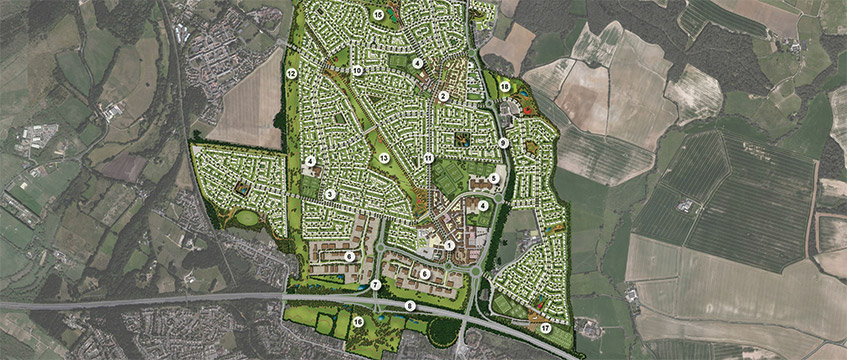Government’s garden cities fail to bloom
The government’s plan to build a new generation of garden cities is struggling to get off the ground.
Analysis by consultancy Lichfields has shown that the 49 projects could deliver 403,000 homes. However, only 3% have been completed.
The government first invited local authorities to put forward ideas for garden cities in 2014, but so far only 14,000 homes have been built and 81,000 more have outline planning permission.
The government’s plan to build a new generation of garden cities is struggling to get off the ground.
Analysis by consultancy Lichfields has shown that the 49 projects could deliver 403,000 homes. However, only 3% have been completed.
The government first invited local authorities to put forward ideas for garden cities in 2014, but so far only 14,000 homes have been built and 81,000 more have outline planning permission.
Overall, 28 Conservative-led councils are responsible for garden cities, representing 196,000 homes. They have a 48% share of the total potential 403,000 homes, while seven Labour councils have a 33,000-home cut, and five Liberal Democrat councils have a 32,000-home share. The next UK local elections will take place in May 2022.
Lichfields predicts that the Garden Communities programme is unlikely to be delivering homes at scale until after the next electoral cycle, but by the 2030s it could be delivering up to 16,000 dwellings per year.
The current crop of Garden Communities are spread throughout the country, with at least one in each English region, with the highest volume (more than 40,000 flats in emerging local plan allocation) in north Essex.
The projects are long-term developments, often spanning periods longer than the 15-20 years typically covered by local plans.
The concept was first initiated in 1898 by Ebenezer Howard, who designed the Letchworth and Welwyn garden cities in Hertfordshire.
However, progress on the schemes, which are designed to be partnerships between private developers and local authorities, has been slow.
Lichfields also warned that there were ongoing levels of planning risk, with a number of proposals experiencing delays due to insufficient evidence that the schemes are “well conceived or deliverable over the plan period”.
Despite this, Lichfields said the programme has “progressed further than some ill-fated predecessors”, citing “new country towns” and “eco towns”.
To progress the garden cities, the consultancy suggested local authorities ensure they can confidently answer specific questions, including whether the scheme is viable when taking into account the necessary infrastructure and affordable housing provision.
Other questions include how the project will be implemented in light of relevant information about land ownership, delivery model and infrastructure requirements.
To send feedback, e-mail anna.ward@egi.co.uk or tweet @annaroxelana or @estatesgazette











